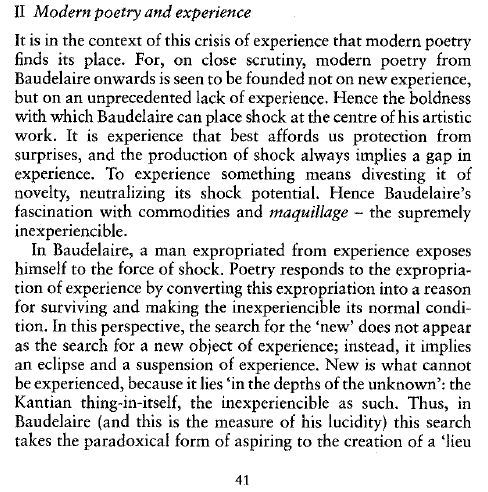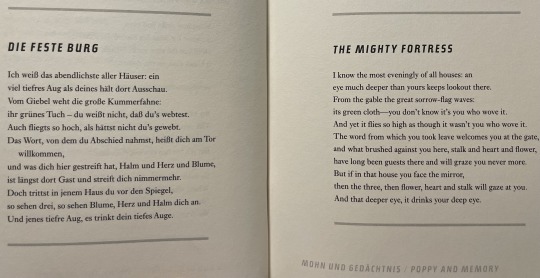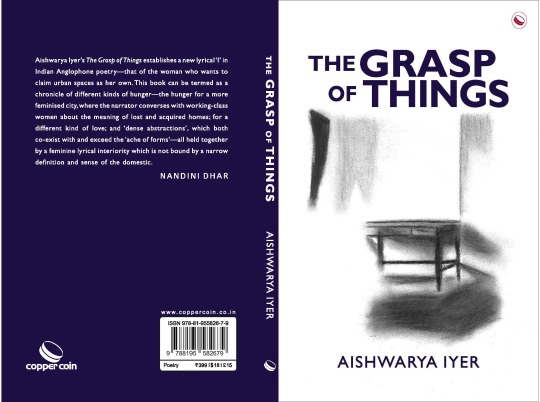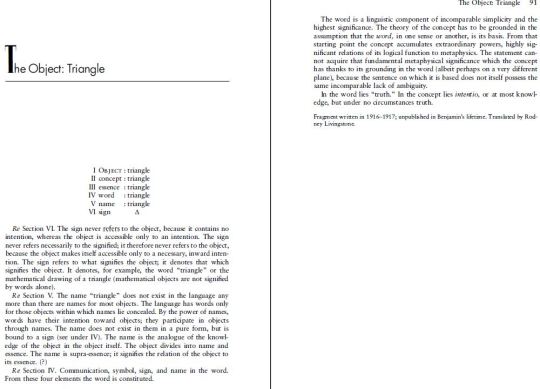Text
Factory
Nikola Vaptsarov 1909-1942
(translator unknown)
A factory, Clouds of smoke above.
The people – simple,
The life – hard, boring.
Life with the mask and grease-paint off
Is a savage dog snarling.
You must tirelessly fight,
Must be tough and persist,
To extract from the teeth
Of the angry,
bristling beast
A crust.
Slapping belts in the shed,
Screeching shafts overhead,
And the air is so stale
You can’t easily
Deeply
Inhale.
Not far off the spring breeze
Rocks the fields, the sun calls...
Leaning skyward
the trees
Shade
The factory walls.
How unwanted,
forgotten
And strange
are the fields !
They
have thrown in the dustbin
The sky and its dreams.
For to stray for a second
Or soften your heart,
Is to lose to no purpose
Your strong
worker’s
arm.
You must shout in the clatter
And din of machines
For your words
to pass over
The spaces between.
I shouted for years –
An eternity ...
I gathered the others too shouted in chorus –
The factory,
the machinery
And the man
in the farthest,
darkest corner.
This shout forged an alloy of steel
And we armoured our life with its plate.
Just try putting
a spoke in the wheel –
It’s your own hand you’ll break.
You, factory,
Still seek to blind us
With smoke and soot,
Layer on layer.
In vain! For you teach us to struggle.
We’ll bring
The sun
Down to us here.
So many
toil-blackened
faces
Under your tyranny smart.
But one heart within you tirelessly
Beats with a thousand hearts.
0 notes
Text
The Silesian Weavers
In lightless eyes there are not tears.
They sit at the loom and gnash the gears.
Germany, we weave the cloth of the dead
Threefold be the curse we weave ’round your head
We’re weaving, we’re weaving.
A curse to the god to whom we knelt.
Through the winter’s cold, such hunger felt.
In the past we hoped, we waited, we cried
You’ve mocked us and poxed us and cast us aside
We’re weaving, we’re weaving.
A curse on the king of the empire,
Who would not quell our misery’s fire.
He took every penny we had to give
Then shot us like dogs with no right to live
We’re weaving, we’re weaving.
A curse on the cold, ruthless fatherland,
Where outrage and shame fester by your hand,
Where blossoms are trampled under your boot,
Where rot and decay are allowed to take root.
We’re weaving, we’re weaving.
The shuttle is flying, the weaving looms roar.
Day and night we weave with you at our door.
Old Germany, we weave the cloth of the dead.
Threefold be the curse we weave ’round your head.
We’re weaving, we’re weaving.
Heinrich Heine (translator unknown)
1 note
·
View note
Text


Giorgio Agamben, Infancy and History: The Destruction of Experience, trans. Liz Heron
3 notes
·
View notes
Text
"And thence if comes about that in the case where we are speaking of human things, it is said to be necessary to know them before we love them, and this has become a proverb; but the saints, on the contrary, when they speak of divine things, say that we must love them before we know them, and that we enter into truth only by charity; they have made of this one of their most useful maxims."
--Pascal (quoted by Agamben in "The Passion of Facticity," Potentialities, trans. Daniel Heller-Roazen)
0 notes
Text
'What have I learned from poetry? That a political task and a political intensity can be conveyed solely through language, and that this task—although it is thoroughly commonplace—cannot be assigned by anyone, it can only be assumed by the poet in lieu of an absent people. And that nowadays no other possible politics exists, because it is solely through the poetic intensification of language that the absent people—for an instant—appears and comes to the rescue.'
--Giorgio Agamben, What I saw, heard, learned..., trans. Alta L. Price
22 notes
·
View notes
Text
“Dil-e-bufro-khatm, jaan-e-khareedun” (“I have sold my heart and bought a soul”)—Nizami (~12th century)
This is the epigraph to Faiz’s “Mujhse pehli si Mohabbat…”
4 notes
·
View notes
Text
This world is falling from the seventh floor
And sparrows commit suicide so that time doesn’t precede them
Time that sits like a dull guest between us
And looks at you
Me and you and time make four
A man and a woman have never met except when time was the fourth person in the room.
--Ghayath Almadhoun, trans. Catharine Cobham here
3 notes
·
View notes
Text
'Psychologically, present-day cynics can be understood as borderline melancholies, who can keep their symptoms of depression under control and can remaine more or less able to work. Indeed, this is the essential point in modern cynicism: the ability of its bearers to work—in spite of anything that might happen, and especially, after anything that might happen . . . . For cynics are not dumb, and every now and then they see the nothingness to which everything leads. Their psychic apparatus has become elastic enough to incorporate as a survival factor a permanent doubt about their own activities. They know what they are doing, but they do it because, in the short run, the force of circumstances and the instinct for self-preservation are speaking the same language, and they are telling them that it has to be so. . . . Cynicism . . . is that modernized, unhappy consciousness on which enlightenment has labored both successfully and in vain. Well-off and miserable at the same time, this consciousness no longer feels affected by any critique of ideology; its falseness is already reflexively buffered.'
--Peter Sloterdijk, Critique of Cynical Reason
12 notes
·
View notes
Text
'I had somehow taken it for granted that we all still believe with Socrates that it is better to suffer than to do wrong. This belief turned out to be a mistake. There was a widespread conviction that it is impossible to withstand temptation of any kind, that none of us could be trusted or even be expected to be trustworthy when the chips are down, that to be tempted and to be forced are almost the same...'
'There exists in our society a widespread fear of judging that has nothing whatever to do with the biblical "Judge not, that ye be not judged," and if this fear speaks in terms of "casting the first stone," it takes this word in vain. For behind the unwillingness to judge lurks the suspicion that no one is a free agent, and hence the doubt that anyone is responsible or could be expected to answer for what he has done. The moment moral issues are raised, even in passing, he who raises them will be confronted with this frightful lack of self-confidence and hence of pride, and also with a kind of mock-modesty that in saying, Who am I to judge? actually means We're all alike, equally bad, and those who try, or pretend that they try, to remain halfway decent are either saints or hypocrites, and in either case should leave us alone...'
'There is no such thing as collective guilt or collective innocence; guilt and innocence make sense only if applied to individuals.'
--Hannah Arendt, 'Personal Responsibility under Dictatorship' (1964)
0 notes
Text
A man's body, and therefore in particular a saint's body, is nothing else but matter and is a piece of the world, of that same world which is a tissue of mechanical necessities. We are ruled by a double law: an obvious indifference and a mysterious complicity, as regards the good, on the part of the matter which composes the world; it is because it reminds us of this double law that the spectacle of beauty pierces the heart.
Simone Weil, "Classical Science and After" On Science, Necessity, and the Love of God, 12
47 notes
·
View notes
Text

Paul Celan, from Mohn und Gedächtnis / Poppy and Memory (1952), trans. Pierre Joris in Memory Rose into Theshold Speech (2020)
3 notes
·
View notes
Text

And so just like that my first book is now available to buy here: https://www.coppercoin.co.in/product-page/the-grasp-of-things
The bilingual poet Nandini Dhar gave me a very generous blurb, for which I am immensely grateful:
"Aishwarya Iyer’s The Grasp of Things establishes a new lyrical ‘I’ in Indian Anglophone poetry—that of the woman who wants to claim urban spaces as her own. This book can be termed as a chronicle of different kinds of hunger—the hunger for a more feminised city, where the narrator converses with working-class women about the meaning of lost and acquired homes; for a different kind of love; and ‘dense abstractions’, which both co-exist with and exceed the ‘ache of forms’—all held together by a feminine lyrical interiority which is not bound by a narrow definition and sense of the domestic."
The cover image title takes from a very well-known Agha Shahid Ali line: 'the world is full of paper'. It's a drawing by me.
My deepest thanks to Sarabjeet Garcha, the publisher-poet, for his vision, imagination, labour and patience.
The Copper Coin Publishing edition is available in the world except the US and Canada.
#aishwarya iyer#nandini dhar#sarabjeet garcha#copper coin publishing#agha shahid ali#Indian English poetry
5 notes
·
View notes
Text
"It is Cézanne's feeling that determined the form of his pictorial structure. It is his pictorial structure that gives off his feeling. If all his pictorial structures were to disappear from the world, so would a certain feeling."
--Robert Motherwell, 'Beyond the Aesthetic', 1946.
6 notes
·
View notes
Video
The poem ‘First dates,’ by Arseny Tarkovsky (born 25 June, 1907; died 27 May, 1989) as it is used in Mirror, the 1975 film directed by the poet’s son, Andrei Tarkovsky (1932-1986)
First Dates
Each moment of our dates, not many,
We celebrated as an Epiphany.
Alone in the whole world.
More daring and lighter than a bird
Down the stairs, like a dizzy apparition,
You came to take me on your road,
Through rain-soaked lilacs,
To your own possession,
To the looking glass world.
As night descended
I was blessed with grace,
The altar gate opened up,
And in the darkness shining
And slowly reclining
Was your body naked.
On waking up I said:
God bless you!
Although I knew how daring and undue
My blessing was: You were fast asleep,
Your closed eyelids with the universal blue
The lilac on the table so strained to sweep.
Touched by the blue, your lids
Were quite serene, your hand was warm.
And rivers pulsed in crystal slits,
Mountains smoked, and oceans swarmed.
You held a sphere in your palm,
Of crystal; on your throne you were sleeping calm.
And, oh my God! -
Belonging only to me,
You woke and at once transformed
The language humans speak and think.
Speech rushed up sonorously formed,
With the word “you” so much reformed
As to evolve a new sense meaning king.
And suddenly all changed, like in a trance,
Even trivial things, so often used and tried,
When standing 'tween us, guarding us,
Was water, solid, stratified.
It carried us I don’t know where.
Retreating before us, like some mirage,
Were cities, miraculously fair.
Under our feet the mint grass spread,
The birds were following our tread,
The fishes came to a river bend,
And to our eyes the sky was open.
Behind us our fate was groping,
Like an insane man with a razor in his hand.
(translated from the Russian by Tatiana Kameneva)
212 notes
·
View notes
Text
Die Lüge ist immer ein Selbstmord des Geistes.
—Johann Gottlieb Fichte
[The lie is always a suicide of the Spirit.]
7 notes
·
View notes
Text
'A novel contains a huge construction, like a bridge, an arch, from the beginning through to the end. In the case of a story, there is no need for an arch. Instead, a story is a black box, in which no one knows what happened.'
--László Krasznahorkai here
7 notes
·
View notes
